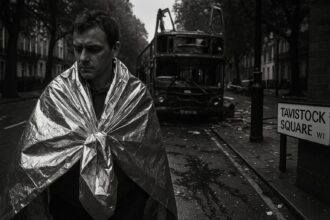French President Emmanuel Macron has expressed a strong stance against Russian military success in Ukraine, mentioning the possible involvement of NATO troops and highlighting the potential escalation into a broader conflict.
French President Emmanuel Macron has taken a firm stance against Russian success in Ukraine, raising concerns about potential NATO troop involvement and the risk of escalating tensions into a larger conflict. In an interview with the Economist, Macron expressed his commitment to preventing Russian victory in the region, citing the importance of European security and stability. This marks a change in his previous positions and is a distinct move from diplomatic engagements.
While Macron has indicated a readiness to involve allied soldiers directly in Ukraine, this suggestion has stirred international debate and apprehension, highlighted by Hungarian Foreign Minister Peter Szijjarto’s warnings of a potential NATO-Russia confrontation. Kremlin spokesman Dmitry Peskov also reacted, suggesting that the deployment of NATO troops would inevitably lead to conflict. As of now, no Western or NATO leaders have confirmed plans to deploy ground troops to Ukraine.
Meanwhile, a historical analysis reveals Moscow’s longstanding practices of targeting dissidents abroad, a strategy tracing back to the Soviet era and the KGB’s global operations. This approach of eliminating dissent continues under President Vladimir Putin, with multiple incidents of attacks on Russian critics overseas, such as Leon Trotsky, Georgi Markov, Alexander Litvinenko, and the Skripals, among others. Despite these accusations, the Kremlin has consistently denied any involvement in these operations. These actions, both historical and ongoing, underscore long-term strategies by Moscow to suppress opposition, presenting an ongoing challenge for global accountability and the safety of dissidents.













